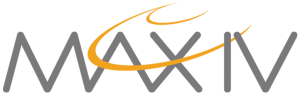Tango Workshop @ ICALEPCS 2021
virtual
This workshop is a continuation in the series of ICALEPCS workshops on Tango. Tango is a toolkit for building modern distributed control systems in C++, Python, and/or Java. It is destined for people who are new to Tango but also for those who want to get an update on the latest tools in Tango. The workshop provides hands-on exercises and examples which attendees can try during or after the workshop. Attendees will acquire a good understanding of the concepts of Tango and its tools for building an object oriented distributed control system.
The following topics will be presented:
- The concepts of Tango, how to install it and write a simple device server in Python and a client in a Jupyter Notebook.
- The Tango virtual machine and the tools in the eco-system of Tango.
- Running a Tango system entirely with containers.
- Tango HDB++ as a high performance control system archiver.
- Write web applications for Tango using Taranta and Waltz.
- Identify the pattern when designing a Control System
- Running a data acquisition system.
A large part of this workshop will allow open discussion between the attendees.
This workshop is only open to any ICALEPCS 2021 delegates. Please refers to the ICALEPCS website for the registration.
This indico pages informs about the detail agenda of the Tango workshop and help the speakers to upload their materials.

